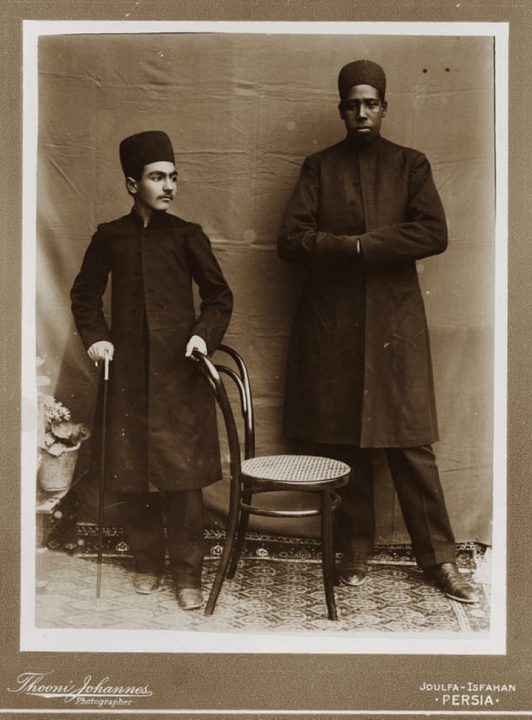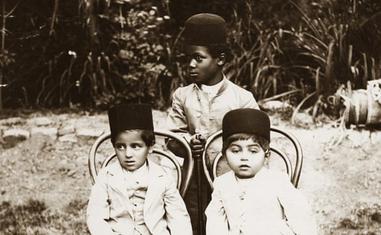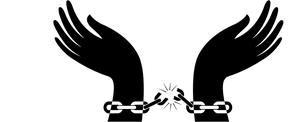The views expressed in our content reflect individual perspectives and do not represent the authoritative views of the Baha'i Faith.
On November 10, 1912, Abdu’l-Baha – Baha’u’llah’s eldest son – recalled his fond childhood memories of Isfandiyar, the family’s faithful Ethiopian servant, who – after 1839, when Baha’u’llah emancipated his own father’s “many” domestic slaves – chose, as a free man, to stay on in Baha’u’llah’s household.
What historical evidence do we have, beyond Baha’u’llah’s written manumission prayer, of that emancipation and Isfandiyar’s eventual fate? I’ve searched for an independent account that would corroborate, at least in some salient details, what happened to Isfandiyar. In volume 4 of Ẓuhuru’l-Ḥaqq (in a section entitled, in Persian, “Kayfiyyat-i giriftari-yi Jamal-i Mubarak” in Tarikh-i Ẓuhur al-Ḥaqq), I found the following partial summary, provided courtesy of Mazda Karimi:
“According to Ẓuhuru’l-Ḥaqq, news arrives that agents are coming to arrest Isfandiyar for interrogation. Baha’u’llah’s wife suggests that he should hide, but Isfandiyar disagrees because he says he owes people money for all the purchases he has made for the household, and has to clear these debts first. A month later, when he finally clears those debts, he asks for permission to leave for Mazandaran, which is granted. There Isfandiyar begins to work for a Yahya Khan (brother of the prime minister) as an equerry [an officer of the royal household in charge of the stables], but when Baha’u’llah reaches Baghdad, Isfandiyar, too, apparently leaves (or perhaps tries to leave) for Baghdad (the text is unclear whether he actually goes to Baghdad or not).
Although Ẓuhuru’l-Ḥaqq is unclear whether Isfandiyar had gone to Baghdad or not — the ambiguity is due to the fact that, according to TZH, Baha’u’llah tells Isfandiyar to stay with Yahya Khan, instead of asking him to return to him – when I read Abdu’l-Baha’s account, it became clear that, at the time, Isfandiyar was actually in Baghdad with Yahya Khan (a point not mentioned in TZH) and that was why Baha’u’llah asked him to stay with, rather than return to his current employer. Baha’u’llah becomes aware that Yahya Khan did not or does not want Isfandiyar to leave and asks Isfandiyar to stay with Yahya Khan, which he accepts.“
The Ẓuhuru’l-Ḥaqq account agrees perfectly with the rest of Abdu’l-Baha’s narrative in “Diary Notes of Ahmad Sohrab,” published in Part 23 of this series of essays, “’King among Men’: Meet The Slave Baha’u’llah Freed.”
The same document also provides further historical information about another former slave, Mubarak, who Baha’u’llah also liberated — this time, in Baghdad, around 1853, apparently because Mubarak had been serving in the household of one of Baha’u’llah’s sisters. This sister’s identity is not altogether clear, although she lived in Takur, Baha’u’llah’s ancestral village in the Persian province of Mazandaran. (My dear wife Nahzy Abadi Buck and I named our first-born son Takur – and he has contributed a couple of articles to BahaiTeachings.org.)

Abdu’l-Baha dearly loved Isfandiyar, and had very high regard for his character. He said: “Whenever I think of Isfandiyar, I am moved to tears, although he passed away fifty years ago.” Here is the full account of what Abdu’l-Baha said about Isfandiyar on November 10, 1912:
I had a servant who was black; his name was Isfandiyar. If a perfect man could be found in the world, that man was Isfandiyar. He was the essence of love, radiant with sanctity and perfection, luminous with light. Whenever I think of Isfandiyar, I am moved to tears, although he passed away fifty years ago.
He was the faithful servant of Baha’u’llah and was entrusted with His secrets. For this reason the Shah of Persia wanted him and inquired continually as to his whereabouts. Baha’u’llah was in prison, but the Shah had commanded many persons to find Isfandiyar. Perhaps more than one hundred officers were appointed to search for him. If they had succeeded in catching him, they would not have killed him at once. They would have cut his flesh into pieces to force him to tell them the secrets of Baha’u’llah.
But Isfandiyar with the utmost dignity used to walk in the streets and bazaars. One day he came to us. My mother, my sister and myself lived in a house near a corner. Because our enemies frequently injured us, we were intending to go to a place where they did not know us. I was a child at that time. At midnight Isfandiyar came in. My mother said, “O Isfandiyar, there are a hundred policemen seeking for you. If they catch you, they will not kill you at once but will torture you with fire. They will cut off your fingers. They will cut off your ears. They will put out your eyes to force you to tell them the secrets of Baha’u’llah. Go away! Do not stay here.”
He said, “I cannot go because I owe money in the street and in the stores. How can I go? They will say that the servant of Baha’u’llah has bought and consumed the goods and supplies of the storekeepers without paying for them. Unless I pay all these obligations, I cannot go. But if they take me, never mind. If they punish me, there is no harm in that. If they kill me, do not be grieved. But to go away is impossible. I must remain until I pay all I owe. Then I will go.”
For one month Isfandiyar went about in the streets and bazaars. He had things to sell, and from his earnings he gradually paid his creditors. In fact, they were not his debts but the debts of the court, for all our properties had been confiscated. Everything we had was taken away from us. The only things that remained were our debts. Isfandiyar paid them in full; not a single penny remained unpaid. Then he came to us, said good-bye and went away.
Afterward Baha’u’llah was released from prison. We went to Baghdad, and Isfandiyar came there. He wanted to stay in the same home. Baha’u’llah, the Blessed Perfection, said to him, “When you fled away, there was a Persian minister who gave you shelter at a time when no one else could give you protection. Because he gave you shelter and protected you, you must be faithful to him. If he is satisfied to have you go, then come to us; but if he does not want you to go, do not leave him.”
His master said, “I do not want to be separated from Isfandiyar. Where can I find another like him, with such sincerity, such faithfulness, such character, such power? Where can I find one? O Isfandiyar! I am not willing that you should go, yet if you wish to go, let it be according to your own will.” But because the Blessed Perfection had said, “You must be faithful,” Isfandiyar stayed with his master until he died.
He was a point of light. Although his color was black, yet his character was luminous; his mind was luminous; his face was luminous. Truly, he was a point of light.
Note: My thanks to Dr. Nosratollah Mohammadhosseini for carefully reading and correcting the prepublication manuscript, 8-4-2020.

















Comments
Sign in or create an account
Continue with Facebookor